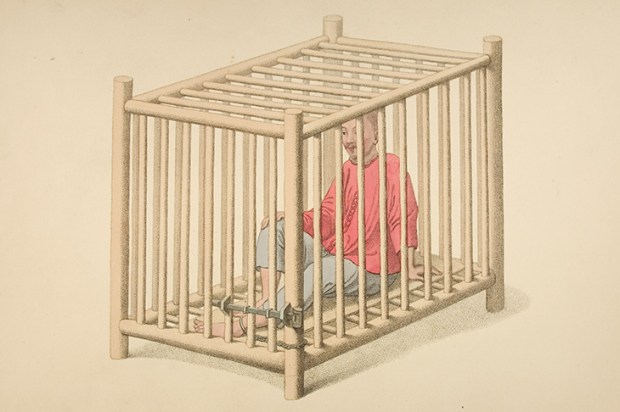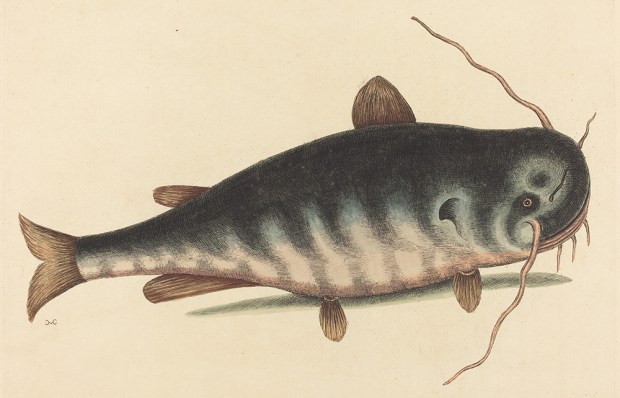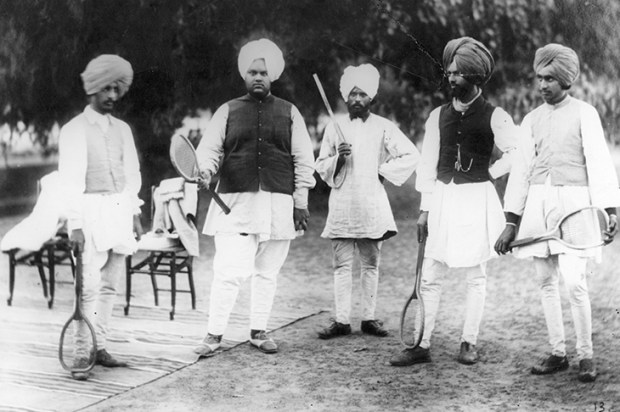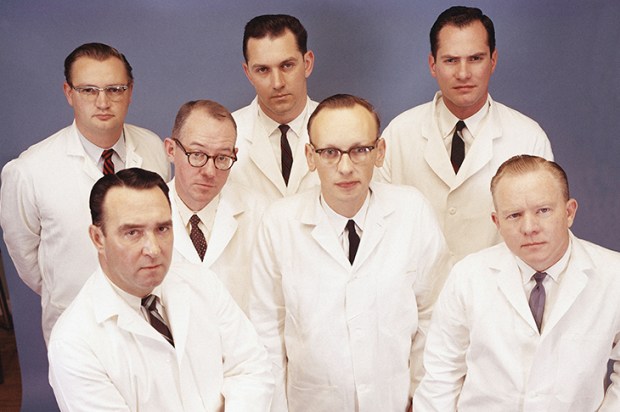Can ‘difficult’ be used as a verb? Surely not, I hear you mutter. But on the web I encountered the claim that ‘changing weather difficults the task’. Eh? What’s going on here? Well, the Oxford English Dictionary (perhaps through gritted teeth) admits that ‘difficult’ has occasionally been used as verb since the 15th century. And it cites a recent example. Florence and Giles is a 2010 Gothic tale by the British novelist John Harding. It contains this sentence: ‘It difficulted me greatly that I could think of no way to get Theo into the house.’
I’m sure John Harding is a thoroughly nice man and is kind to animals. But he uses ‘difficult’ as a verb! No, John, no, no, no.
As I have mentioned before, the education system has let down at least the last two generations (or should that be three?) of our children – refusing to teach the rules of grammar and correct English. The result are all those little bits of butchered English we hear every day. And if one of them uses ‘difficult’ as a verb, we should just shake our head sadly and blame the education system. Because they are not knowingly, and cleverly, reviving a rare verb from the 15th century. No. They are just stuffing up.
When a lady once asked the great Dr Johnson why he got a particular definition in his magisterial dictionary wrong, he replied, ‘Ignorance, madam, sheer ignorance’.’And that is what those who use ‘difficult’ as a verb are displaying these days – ignorance, madam, sheer ignorance.
In a little less than a month King Charles III and Queen Camilla will visit Australia. New South Wales Premier Chris Minns has stressed the importance of the royal couple meeting ordinary Aussies. However, despite this focus there will be one word missing from all their schedules, and all the reports of what they do – ‘walkabout’. This was the word picked up in Australia by the late Queen’s aides in the 1950s and from then on used to apply to all royal ‘meet and greet’ in the open air. When the royals got out of their cars and walked down either side of the crowded streets, chatting and shaking hands, it has been called a ‘walkabout’ for close on 70 years. So, why not now? Apparently because it might give offence to some indigenous Australians. Really? Well, that’s what we’re being told. It is, in reality, an utterly stupid reason to abandon such a useful and descriptive word. Here’s why. In the first place ‘walkabout’ is not an Aboriginal word – it’s an English word. Admittedly, when it first appeared, in 1826, it was part of ‘pidgin’ or Aboriginal English. But it is still constructed from English language components. It comes from our national language, which just happens to be English! Used in this way ‘walkabout’ can mean: ‘Journeying undertaken on foot into the bush by an Aboriginal person who wishes to live in a traditional manner for a period’ (Oxford English Dictionary). But it can also mean (more simply); ‘To travel across country without restriction’ (Australian National Dictionary). Furthermore, the word was never restricted to Aboriginal people. From 1872 ‘walkabout’ is recorded as meaning, ‘A person who travels on foot, esp. for an extended period of time; a swagman or traveller’ (Oxford). So a white man could say to his mates, ‘I’m going walkabout in the bush for a bit, to try to find some work’. And from 1908 ‘walkabout’ has also been used to mean ‘a period of rest or a holiday.’ (AND). So ‘walkabout’ is not an Aboriginal word, and never has been, and has never been restricted to indigenous Australians. It’s a word that belongs to all Australians, and has long been used by all Australians. I presume the nervous nellies in the Albanese government have told the royal party not to use the word ‘walkabout’.But the royal family need to learn to do what the rest of us do – never pay any attention to anything the Albanese government recommends. And give ‘walkabout’ back to all Australians – which is where it belongs!
Got something to add? Join the discussion and comment below.
Contact Kel at ozwords.com.au
You might disagree with half of it, but you’ll enjoy reading all of it. Try your first month for free, then just $2 a week for the remainder of your first year.













